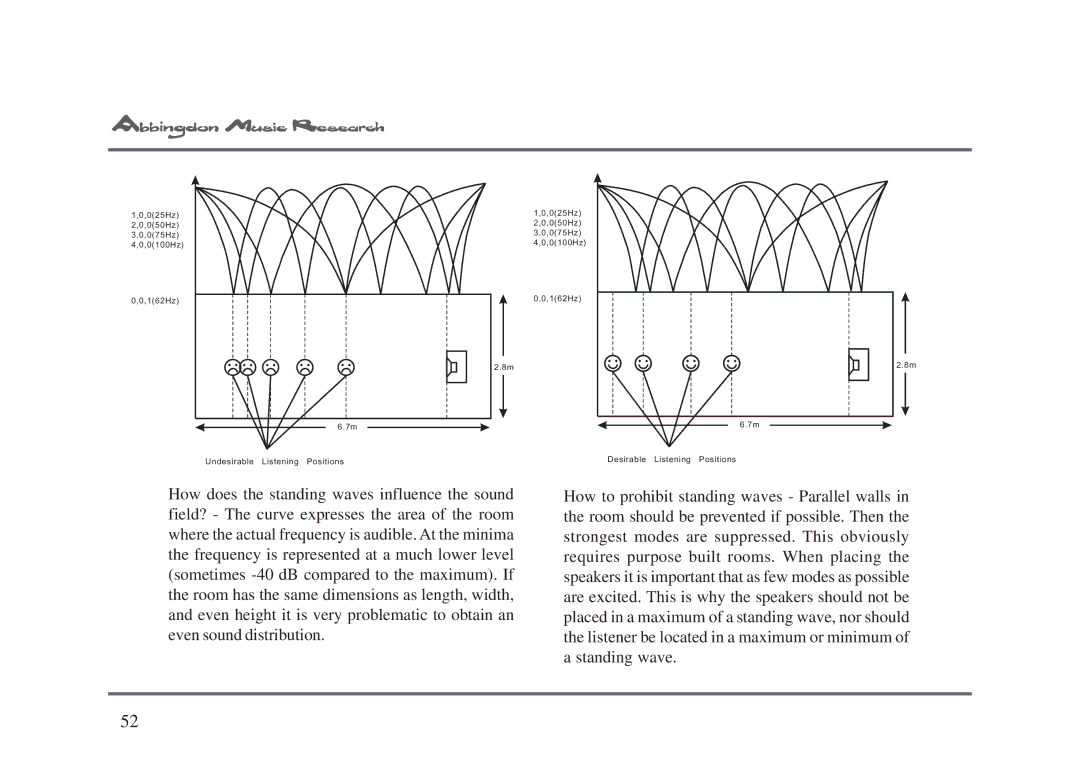
1,0,0(25Hz)
2,0,0(50Hz)
3,0,0(75Hz)
4,0,0(100Hz)
0,0,1(62Hz)
6.7m
Undesirable Listening Positions
1,0,0(25Hz)
2,0,0(50Hz)
3,0,0(75Hz)
4,0,0(100Hz)
0,0,1(62Hz)
2.8m
6.7m
Desirable Listening Positions
2.8m
How does the standing waves influence the sound field? - The curve expresses the area of the room where the actual frequency is audible. At the minima the frequency is represented at a much lower level (sometimes
How to prohibit standing waves - Parallel walls in the room should be prevented if possible. Then the strongest modes are suppressed. This obviously requires purpose built rooms. When placing the speakers it is important that as few modes as possible are excited. This is why the speakers should not be placed in a maximum of a standing wave, nor should the listener be located in a maximum or minimum of a standing wave.
52
